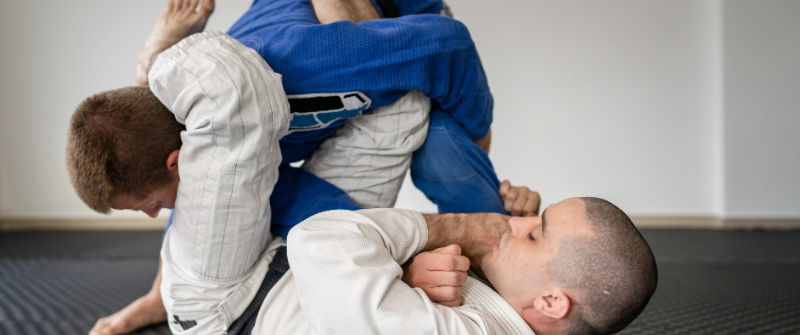
- by NEXO Team
- February 26, 2024
When it comes to martial arts, being successful isn’t just about learning the different techniques involved with this practice; it’s also about mastering the business of martial arts. Whether you’re a seasoned martial artist looking to open a studio or an entrepreneur passionate about fitness, having a solid business plan is crucial for long-term success. Keep reading to learn about the dos and don’ts of creating a martial arts business plan that will set you up for success.
Martial Arts Business Plan Dos
1. Research and Market Analysis
Conducting thorough research and market analysis is vital to any successful martial arts business plan. This entails more than just glancing at the local martial arts scene. It’s really about delving deep into the nuances of your target market and the industry landscape.
Identifying target demographics involves understanding not only the age, gender, and socioeconomic status of your potential students but also their motivations, preferences, and pain points. Are you targeting busy professionals seeking stress relief or athletes aiming for competition success? You can tailor your offerings and marketing more effectively by pinpointing your ideal audience.
It is also essential to take the time to analyze local competition beyond simply acknowledging other martial arts studios in your area. It’s about studying their strengths, weaknesses, pricing strategies, and customer satisfaction levels. What aspects of your business will set it apart from the competition, and how can you capitalize on those differences? Understanding the competitive landscape allows you to carve out your niche and position your studio for success.
2. Develop a Clear Vision and Mission Statement
A clear vision and mission statement will serve as the guiding principles for the martial arts studio, and they’ll help to shape its identity, culture, and direction. They should be more than just words on paper; they’re the driving force behind every decision and action for the business.
Crafting a compelling mission statement that reflects the values of the business is really about articulating why you do what you do and how you aim to make a difference in the lives of your students. The mission statement should resonate with the target audience and inspire loyalty and trust. It should also encapsulate the essence of your studio’s aspirations, serving as a guiding point for both the staff and students.
3. Detailed Financial Planning
For many, financial planning is generally seen as the least glamorous aspect of entrepreneurship. However, it’s one of the most critical components. Without a solid financial plan, even the most well-intentioned martial arts business can have difficulty succeeding in the long run.
Creating a comprehensive budget will involve meticulously outlining all of the anticipated expenses, from rent and utilities to payroll and marketing. No stone should be left unturned when it comes to estimating costs, as unforeseen expenses can quickly derail even the most thought-out plans. By creating a detailed budget, you can allocate resources more efficiently and identify additional areas for cost savings.
Setting realistic financial goals and milestones is also essential for measuring progress and staying on track toward long-term success within the business. Whether the goal is to achieve a certain amount of profit within the first year or expand to multiple locations within a few years, setting specific and realistic goals will help provide more clarity and accountability.
4. Effective Marketing Strategy
Having a robust marketing strategy set in place is essential when it comes to attracting and retaining students for the martial arts studio. From building brand awareness to converting leads into loyal customers, effective marketing can make all the difference in a business’s success.
Utilizing digital marketing tools and social media platforms can help you reach your target audience where they are likely already spending a large amount of their time – online. Whether it’s creating engaging content for your website, leveraging paid advertising on platforms like Facebook and Instagram, or optimizing your search engine presence through search engine optimization, digital marketing can offer incredible opportunities to increase visibility and engagement.
Building a strong brand identity is also an essential aspect of developing a martial arts business plan, and it’s about much more than just having a catchy logo or color scheme. It’s also about cultivating a distinct voice that resonates with the target audience. What values do you want your brand to embody, and how do you want to be perceived by potential students? Consistency in this tone of voice across all touchpoints – from your website and social media presence to your signage and promotional materials – helps reinforce the brand’s identity and builds trust among your audience.
5. Investing in Quality Equipment and Facilities
A studio’s physical environment plays a prominent role in shaping the student experience and fostering a sense of belonging and commitment. By investing in high-quality equipment and facilities, as well as maintaining cleanliness and organization within the studio, martial arts business owners can create welcoming and inspiring spaces where students are motivated to learn.
Martial Arts Business Plan Don’ts
1. Neglecting Legal and Insurance Considerations
It’s so important not to disregard the legal and insurance aspects of running a martial arts studio. Obtaining all of the necessary permits and licenses, securing liability insurance coverage, and ensuring compliance with employee contracts and waivers are all non-negotiables when it comes to developing a martial arts business plan. Taking all of the steps that are necessary to fulfill these obligations is essential for safeguarding the studio’s future.
2. Overlooking Customer Service and Retention
Providing incredible customer service should always be a top priority for any martial arts studio owner. This means going beyond just offering classes and ensuring that students really feel supported and valued throughout their journey, addressing feedback and complaints promptly, and building a sense of community within your studio. Investing time and effort into customer satisfaction helps to cultivate more meaningful connections with the studio’s clientele, which helps build more customer loyalty in the long run.
3. Underestimating Operational Costs
Underestimating operational costs is a common pitfall that can lead to financial instability and business failure. This is why it’s so crucial to take a comprehensive approach to financial planning and to consider both short-term expenses and long-term sustainability. If you overcommit resources without a clear understanding of your studio’s financial health, ignore hidden expenses like maintenance and utilities, and rely too heavily on short-term gains, you can end up jeopardizing the viability of the business.
4. Neglecting Staff Training and Development
The instructors and staff at any fitness facility play a critical role in shaping the clients’ experience and driving the overall success of the business, and neglecting their training and professional development can have a detrimental effect on students’ satisfaction and retention. This is why investing in ongoing training opportunities, providing avenues for staff to enhance their skills, and fostering a culture that encourages continuous learning are essential for maintaining a high standard of service. It’s important to recognize the value of knowledgeable and motivated personnel in creating a positive learning environment and to prioritize initiatives for staff training and development accordingly.
Conclusion
Ultimately, creating a successful martial arts business plan requires meticulous planning, flexibility, and the willingness to improve continuously. By following all of the dos and avoiding the don’ts outlined in this article, aspiring martial arts studio owners can create a solid foundation for their business so long as they stay focused on their goals, never stop striving for excellence, and recognize that the success of any business venture starts with a well-crafted plan.
Categories
Fill out a short form to contact us with your questions or to receive a customized quote.
Recent Posts
-
 Injury Waivers Aren’t Enough: Insurance Gaps Jiu-Jitsu Owners Overlook
January 21, 2026
Injury Waivers Aren’t Enough: Insurance Gaps Jiu-Jitsu Owners Overlook
January 21, 2026 -
 How Gym Risk Management Can Lead to Lower Premiums Over Time
January 21, 2026
How Gym Risk Management Can Lead to Lower Premiums Over Time
January 21, 2026 -
 Why Combat Sports Gyms Pay More for Insurance and How to Control Costs
January 21, 2026
Why Combat Sports Gyms Pay More for Insurance and How to Control Costs
January 21, 2026 -
 Functional Fitness Injury Trends That Impact Insurance Underwriting
January 21, 2026
Functional Fitness Injury Trends That Impact Insurance Underwriting
January 21, 2026 -
 Why Pilates Studios Face Unexpected Liability Despite Being Low-Impact
January 21, 2026
Why Pilates Studios Face Unexpected Liability Despite Being Low-Impact
January 21, 2026

